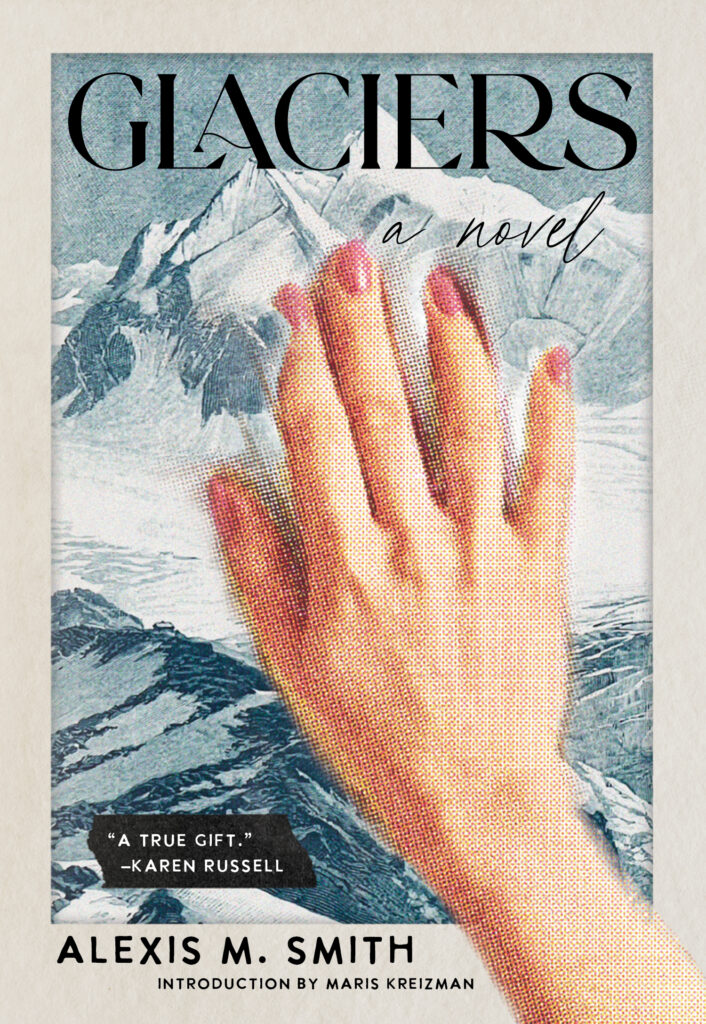
AMSTERDAM
Isabel often thinks of Amsterdam, though she has never been there, and probably never will go.
As a child in a small town on Cook Inlet in Alaska, she saw volcanoes erupting, whales migrating, and icebergs looming at sea before she ever saw a skyscraper or what could properly be called architecture. She was nine years old, on a trip to her aunt’s with her mother and sister, the first time she visited a real metropolis: Seattle. She took it all in—the towering buildings and industrial warehouses, the train tracks and bridges, the sidewalk cafés and neighborhood shops, and the skyline along Highway 99, the way the city seemed to rise right up out of Elliott Bay, mirroring the Olympic Mountains across the sound. The breadth and the details overwhelmed her, but soon she loved the city in the same way she loved the landscape of the north. Old churches were grand and solemn, just like glaciers, and dilapidated houses filled her with the same sense of sadness as a stand of leafless winter trees.
She began collecting postcards of other cities: Paris, London, Prague, Budapest, Cairo, Barcelona. She borrowed books from the library and watched old movies, just to get a glimpse of these other places. She imagined visiting them, walking the streets, sleeping in creaky beds in hostels, learning a few words of every language.
Isabel finds the postcard of Amsterdam on Thursday evening, at her favorite junk store, across from the food carts on Hawthorne. It is a photograph of tall houses on a canal, each painted a different color, pressed together and tilted slightly, like a line of people, arm in arm, peering tentatively into the water. The picture has a Technicolor glow, the colors hovering over the scene rather than inhabiting it.
She turns the postcard over, expecting nothing—an antique white space never utilized—like others on the rack, bought decades ago on long-forgotten vacations, and never mailed. But Amsterdam had been stamped; Amsterdam had been posted. The postmark is dated 14 Sept 1965 and there is a message, carefully inscribed:
Dear L—
Fell asleep in a park. Started to rain. Woke up with my hat full of leaves. You are all I see when I open or close a book.
Yours,
M
Isabel stands before the rotating metal rack for a long time, holding the postcard, rereading the message, imagining the young man (it must have been a young man) whose small, precise handwriting stretches across the allotted space perfectly. She imagines the young woman (Miss L. Bertram, 2580 N. Ivanhoe St., Portland, Ore.) who received the postcard, and how much she must have read between those few lines, how much she must have longed for him to say more.
Isabel turns back to the image of Amsterdam, wondering if the houses on the canal still stand, or if they have succumbed to time and damp. Amsterdam is one of those low-lying cities, she thinks, remembering a New Yorker article about melting icecaps.
She searches the rack for more of Amsterdam and the correspondence between M and L, but finds none. She buys the postcard and leaves with it tucked deep in her coat pocket.
Walking home, she thinks Amsterdam must be a lot like Portland. A slick fog of a city in the winter, drenched in itself. In the spring and summer: leafy, undulating green, humming with bicycles, breeze-borne seeds whirling by like tiny white galaxies. And in the early glorious days of fall, she thinks, looking around her, chill mist in the mornings, bright sunshine and halos of gold and amber for every tree.
Back in her apartment she pins Amsterdam to the wall above her bed, beneath another old postcard: four brightly painted totem poles and a few muskeg spruce, leaning over a marshy inlet.
*
Isabel’s parents returned to Alaska soon after she was born. They had lived in Washington for four years, since Isabel’s older sister, Agnes, was born. They lived in a dumpy apartment over a drugstore in Bellingham, then in a cooperative household in Seattle, with three other families, several cats, and a blind Labrador retriever named Little John. Isabel’s father was a musician who had dropped out of music school. He worked odd jobs and gave the occasional guitar lesson. Isabel’s mother stayed home with Agnes, cooking and gardening with the other women in the household. With one child, the family might have gone on like this. Isabel was born on Valentine’s Day 1979, and within a month her parents decided to go back to where they had grown up, where her father could get a good-paying job on the North Slope.
Isabel doesn’t actually remember, but she imagines the voyage now, twenty-eight years later.
The ferry from Seattle was crowded with other families, not Alaskan families but the kind of loose-minded travelers who pointed and photographed without really seeing.
Like other great creatures before them, the glaciers were dying, and their death, so distant and unimaginable, was a spectacle not to be missed. The ferry slowed where a massive glacier met the ocean; a long, low cracking announced the rupture of ice from glacier; then came the slow lunge of the ice into the sea. This is calving—when part of a glacier breaks free and becomes an iceberg—a kind of birth. The calving sent waves, rocking the ferry. Hands gripped railings and feet separated on gridded steel. There were shouts of appreciation and fear, but nothing like grief, not even ordinary sadness.
North of Juneau, the boat lingered near some rocks. A voice announced that below, starboard, was the wreck of the Princess Sophia, sunk in a storm just before the armistice. A gale whipped the ship over some rocks and tore her open like a can of salmon. All aboard died in the oily, frigid water. Only the captain’s wolfhound, which made the dark, impossible swim to shore, survived. He shivered and howled among the rocks until rescuers carried him away. Only a few yards of mast were visible above water after the ship went down, and the wind and waves had driven the bodies of passengers and crew miles along the coastline.
The travelers, pondering this tragedy, lined the rails to peer into the water. Somewhere beneath them, they contemplated, were the disintegrating remains of a boat not so different from the one they were on. What did they expect to see in that water? Their own wavering reflections stared gravely back at them.
Isabel’s family sat in the commissary during the viewing of the Princess Sophia, eating sandwiches with no lettuce.
Only a few grainy photographs remain to tell the tale. In the first, she is dressed in hand-knit blue wool. The smallest living thing, even smaller than the gulls. Her father holds her, his back against the railing, her mother and Agnes to the left. Behind them: deep, dark water and stony sky. The porpoises that sometimes surfaced are not surfacing. The whales that sometimes arched smoothly over the waves are not worrying the water’s fractal plaintiveness. Other photographs are notable for what is absent: her mother, who was the photographer, only appears at the beginning of this story, for the family portrait, then disappears.
The steaming boat eventually harbored. There were long hours on land in a car, north, then south again, down the peninsula to Soldotna, named (some said) after the Russian word soldat, for soldier. A small city on the Kenai River known for its salmon and halibut fishing, and as a gas and bathroom break on the way to Homer.
Outside town was the homestead of her father’s grandmother, Agnes, her sister’s namesake, who had died the previous summer. Three rooms with a woodstove and running well water. A small garden with raspberries and a weedy patch of Sitka strawberries. An acre of woods. Her mother made the beds with felted-wool and down blankets. The cast-iron pans and chipped china came with the house. Her father hung a rope swing for her sister from the tallest tree. Her mother started seeds in the greenhouse. The aspen and birch were just opening up, shuddering off the cold.
__________________________________
Excerpted from Glaciers by Alexis M. Smith. Copyright © 2012 by Alexis Smith. Reissued with an Introduction 2023. Published courtesy of Tin House.


